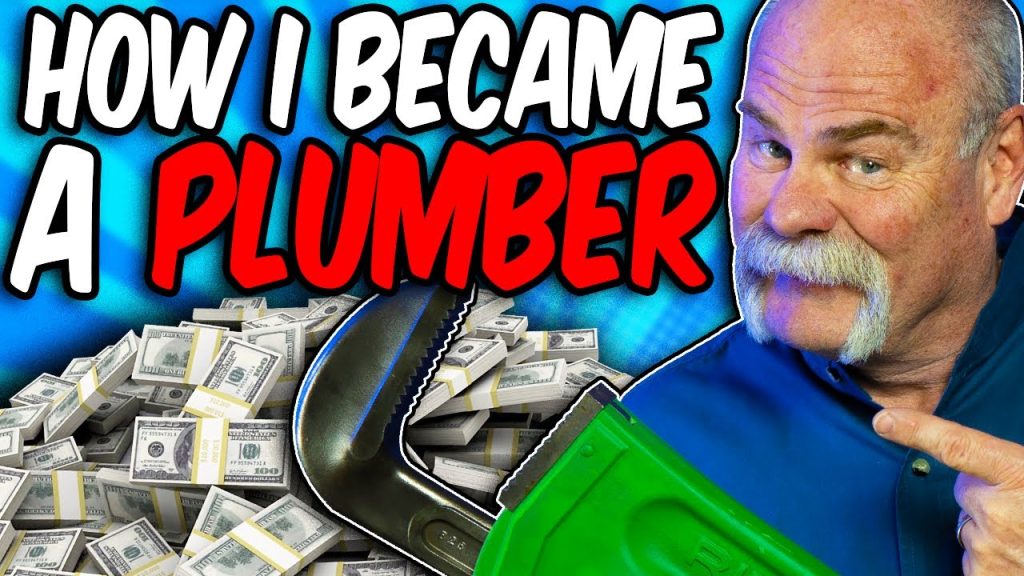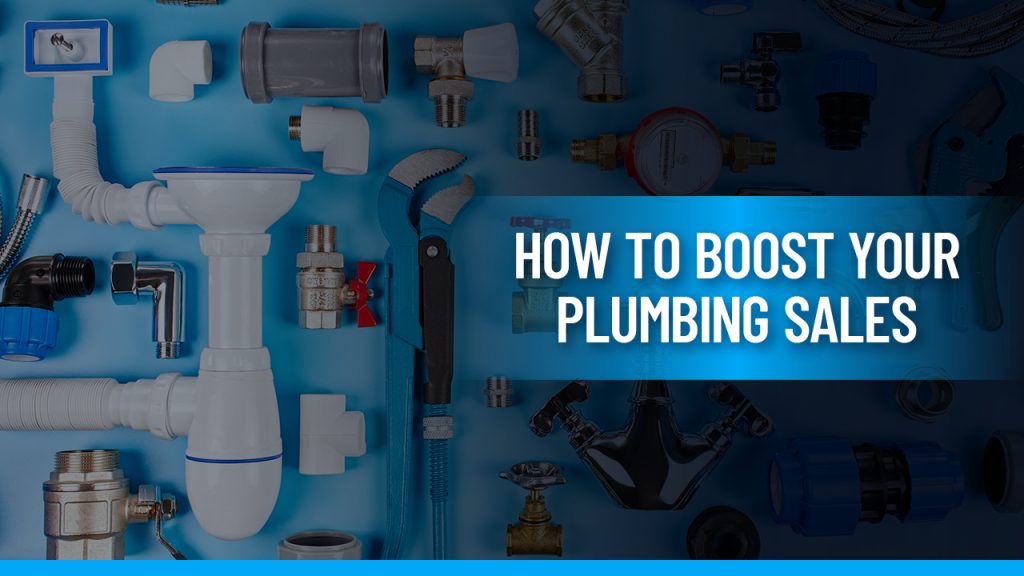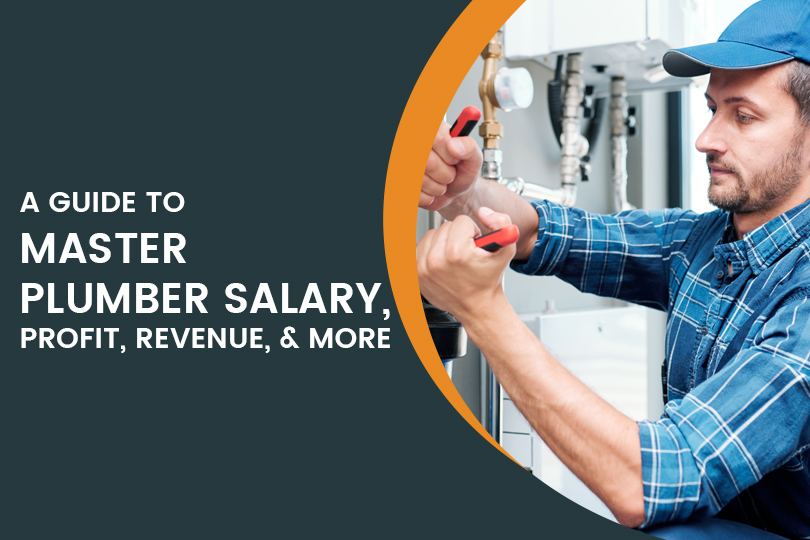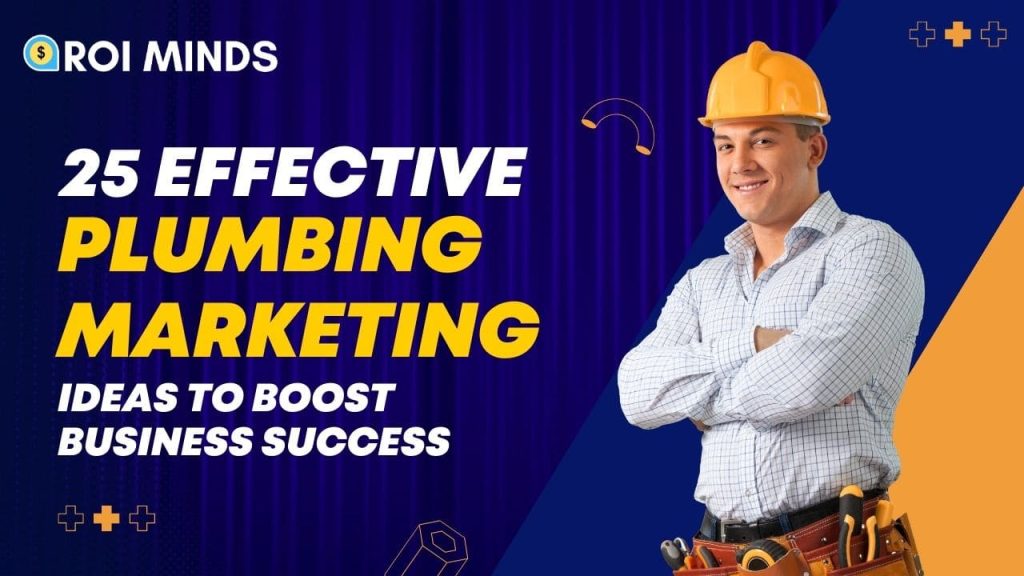Maximizing Earnings in the Plumbing Industry: Tips for Success” is an informative video by Roger Wakefield Plumbing Education on starting a career in plumbing. The video touches upon important aspects such as residential versus commercial plumbing, service versus construction plumbing, and the differences between non-union and union plumbing. It also provides tips on finding a job in plumbing and shares Roger Wakefield’s personal story of how he got started in the field.
Roger Wakefield Plumbing Education encourages viewers to share their own stories of beginning their careers in the trades. The video emphasizes the importance of choosing the right path in plumbing, whether residential or commercial, service or construction, and union or non-union. It also highlights the significance of continuous learning and setting end game goals to maximize earnings in the plumbing industry.

Choosing Between Residential and Commercial Plumbing
When considering a career in plumbing, one of the key decisions to make is whether to specialize in residential or commercial plumbing. Both sectors offer unique opportunities and challenges that can significantly impact your career. Residential plumbing typically involves working on properties such as houses, apartments, and condos, while commercial plumbing deals with larger-scale projects like industrial plants or high-rise buildings. It’s essential to think about what type of environment you prefer working in, whether it’s the tight-knit community of residential neighborhoods or the hustle and bustle of commercial projects.
Factors to consider when choosing between residential and commercial plumbing
When deciding between residential and commercial plumbing, it’s crucial to think about your preferences, skills, and long-term career goals. Residential plumbing may offer more diverse projects and direct interaction with homeowners, while commercial plumbing can provide larger-scale projects and potentially higher pay. Consider factors such as the type of work environment you thrive in, the scale of projects you enjoy working on, and the potential career growth opportunities in each sector.
Potential earnings in residential versus commercial plumbing
Earnings in residential and commercial plumbing can vary based on factors such as location, experience, and project scope. While commercial plumbing projects tend to be more extensive and may offer higher pay rates, residential plumbing can provide consistent work and opportunities for repeat business. It’s essential to research the average earnings in both sectors and consider how these factors align with your financial goals and lifestyle preferences.
Advantages and disadvantages of working in residential and commercial plumbing
Residential plumbing offers a more personalized approach to customer service, allowing you to establish long-term relationships with clients. On the other hand, commercial plumbing projects often involve working with a team and collaborating on complex installations. However, commercial projects may require specialized skills and certifications that residential plumbing does not. Understanding the advantages and disadvantages of each sector can help you make an informed decision that aligns with your career aspirations.
Service vs. Construction Plumbing
Within the plumbing industry, professionals can choose to specialize in service plumbing or construction plumbing, each offering unique opportunities and challenges.
Overview of service plumbing and construction plumbing
Service plumbing involves diagnosing and repairing plumbing issues in existing buildings, while construction plumbing focuses on installing new plumbing systems in residential and commercial properties. Service plumbers must possess a strong problem-solving ability and excellent communication skills to interact with customers effectively. Construction plumbers, on the other hand, require attention to detail and a thorough understanding of blueprints and building codes.
Earnings potential in service plumbing versus construction plumbing
Service plumbers may earn a steady income through service calls and emergency repairs, while construction plumbers can earn higher pay rates for working on large-scale projects. Construction projects often offer overtime opportunities and bonuses for completing projects on schedule. It’s essential to consider the earning potential in both service and construction plumbing and determine which aligns with your financial goals and lifestyle preferences.
Skills and training required for service and construction plumbing
Service plumbers must possess strong technical skills, a customer-oriented mindset, and the ability to work independently. Construction plumbers need proficiency in reading blueprints, understanding building codes, and working effectively in a team environment. Both sectors require ongoing training and certification to stay updated on industry standards and best practices. Investing in skill development and training can enhance your expertise and marketability in either service or construction plumbing.
Non-Union vs. Union Plumbing
Within the plumbing industry, professionals have the option to work as non-union or union plumbers, each offering distinct advantages and considerations.
Differences between non-union and union plumbing
Non-union plumbers work for private companies or as independent contractors, while union plumbers are members of a labor union that represents their interests and negotiates contracts on their behalf. Non-union plumbers have the flexibility to choose their work arrangements and negotiate pay rates directly with employers. Union plumbers benefit from collective bargaining agreements, access to training programs, and job security through union representation.
Impact of union membership on earnings and job security
Union plumbers typically receive higher wages, better benefits, and job security through union contracts that establish workplace standards and conditions. Non-union plumbers may have more flexibility in setting their pay rates and work schedules but could face uncertainties in job security and benefits. Understanding the impact of union membership on earnings and job stability can help you decide whether to pursue a career as a union or non-union plumber.
Considerations when deciding between non-union and union plumbing
When choosing between non-union and union plumbing, consider factors such as job stability, pay rates, benefits, and training opportunities. Union membership can provide access to industry-specific training programs and resources that enhance your skills and marketability as a plumber. Non-union plumbers may have more autonomy in negotiating pay rates and work arrangements but could face challenges in job security and access to comprehensive benefits. Evaluate your priorities and career goals to determine whether union or non-union plumbing aligns with your professional aspirations.
Finding a Job in Plumbing
Securing a job in the plumbing industry requires a proactive approach to job searching, networking, and presenting yourself as a qualified candidate. Whether you’re a seasoned professional or just starting in the field, there are strategies you can utilize to find job opportunities in plumbing.
Tips for searching for plumbing job opportunities
Utilize online job boards, company websites, and industry-specific platforms to search for plumbing job openings. Tailor your resume and cover letter to highlight your relevant experience, skills, and certifications. Attend job fairs, industry events, and trade shows to connect with potential employers and learn about job openings in the plumbing field. Networking with other professionals in the industry can also lead to valuable job opportunities and referrals.
Networking strategies for connecting with potential employers
Join professional plumbing organizations, attend networking events, and engage with industry professionals on social media platforms like LinkedIn. Build relationships with plumbing contractors, suppliers, and other professionals in the field to gain insights into job openings and career advancement opportunities. Consider volunteering for community projects or apprenticeship programs to showcase your skills and work ethic to potential employers. Networking can play a significant role in finding job opportunities and advancing your career in the plumbing industry.
Preparing a strong resume for plumbing positions
Craft a well-structured resume that highlights your plumbing experience, certifications, and relevant skills. Tailor your resume to each job application by emphasizing your accomplishments, training, and qualifications that align with the job requirements. Include details about your work history, education, and any specialized training you’ve completed. Proofread your resume carefully for errors and ensure it presents you as a professional and competent candidate for plumbing positions. A strong resume can make a lasting impression on hiring managers and increase your chances of securing a job in the plumbing industry.

Personal Story of Starting in Plumbing
Roger Wakefield’s journey into the plumbing industry serves as an inspirational example of how dedication and perseverance can lead to a successful career. Facing challenges and uncertainties early in his career, Roger’s story highlights the importance of seizing opportunities, continuous learning, and pursuing one’s passion.
Roger Wakefield’s journey into the plumbing industry
Roger Wakefield’s career in plumbing began with a conversation with a friend who introduced him to the trade and the opportunities it offered. Starting as a teenager working for a plumbing company, Roger discovered his passion for building and fixing things, which fueled his interest in pursuing a career in plumbing. Despite facing setbacks and doubts along the way, Roger’s determination and hard work enabled him to overcome challenges and establish a successful career in the plumbing industry.
Challenges faced and lessons learned along the way
Throughout his journey, Roger encountered challenges such as quitting school to focus on plumbing, navigating career changes, and balancing personal and professional priorities. These experiences taught him valuable lessons about perseverance, adaptability, and the importance of continuous learning in a rapidly evolving industry. Roger’s story exemplifies the resilience and dedication required to succeed in plumbing and serves as an inspiration to aspiring professionals in the field.
Inspiration and advice for aspiring plumbers
Roger Wakefield’s story of starting in plumbing offers inspiration and valuable insights for individuals considering a career in the industry. His advice to aspiring plumbers emphasizes the importance of setting clear goals, staying committed to learning, and embracing new opportunities for growth. By sharing his experiences and encouraging others to pursue their passions in plumbing, Roger serves as a mentor and role model for those seeking a rewarding and fulfilling career in the trade.
Maximizing Earnings in the Plumbing Industry
To maximize earnings in the plumbing industry, professionals must focus on setting clear financial goals, continuous learning, and implementing strategies to increase their income potential.
Setting clear financial goals in the plumbing profession
Establish specific financial objectives, such as earning targets, savings goals, and investment plans, to guide your career in the plumbing industry. Determine your desired income level, retirement savings plan, and financial milestones to monitor your progress and stay motivated to achieve your goals. Setting clear financial goals can help you make informed decisions about career advancement opportunities, training programs, and income-generating activities.
Importance of continuous learning and skill improvement for increasing earnings
Invest in ongoing training, certification programs, and skill development initiatives to enhance your expertise and marketability as a plumber. Stay updated on industry trends, technological advancements, and best practices to position yourself as a knowledgeable and valuable professional in the plumbing field. Continuously learning new skills and techniques can lead to higher pay rates, career advancement opportunities, and increased earning potential over time.
Strategies for maximizing income potential as a plumber
Implement strategies such as specializing in high-demand services, expanding your service offerings, and investing in innovative tools and equipment to increase your income potential as a plumber. Explore opportunities for entrepreneurship, project management, and leadership roles within the industry to diversify your income streams and advance your career. By identifying lucrative opportunities, developing valuable skills, and leveraging industry trends, you can maximize your earnings and achieve financial success in the plumbing industry.

Sharing Stories and Experiences
Encouraging viewers to share their own stories and experiences in the plumbing trade can foster a sense of community, support, and inspiration among professionals in the industry.
Encouraging viewers to share their own stories of getting started in the trades
Invite viewers to share their personal experiences, challenges, and achievements in the plumbing trade to create a collaborative and engaging platform for knowledge-sharing and networking. By encouraging open dialogue and storytelling, you can connect with a diverse audience of professionals, apprentices, and enthusiasts who can benefit from sharing their unique perspectives and insights.
Building a community of support and inspiration for aspiring plumbers
Create a welcoming and inclusive online community where aspiring plumbers can connect, learn, and seek advice from experienced professionals in the trade. By fostering a supportive environment and promoting mentorship opportunities, you can empower individuals to pursue their career goals, overcome obstacles, and find inspiration in the shared stories of success and resilience within the plumbing industry.
Learning from the diverse experiences of individuals in the plumbing industry
Encourage viewers to listen to and learn from the diverse experiences, perspectives, and lessons shared by individuals working in the plumbing field. By engaging with a broad range of stories and insights, professionals can gain valuable knowledge, perspectives, and inspiration to enhance their careers and navigate challenges effectively. Emphasize the importance of building a community of support, empathy, and collaboration to promote professional growth and success in the plumbing industry.
Benefits of Plumbing Education and Training
Investing in plumbing education and training can provide numerous benefits, including enhanced skills, improved earning potential, and increased job opportunities within the industry.
Overview of the importance of education and training in the plumbing field
Earning certifications, attending training programs, and pursuing educational opportunities in plumbing can help professionals develop essential skills, industry knowledge, and practical experience. Plumbers who invest in education and training often receive higher pay rates, access to specialized job roles, and recognition for their expertise in the field. Education and training play a vital role in advancing careers, expanding skill sets, and staying competitive in the evolving plumbing industry.
Certifications and credentials that can boost earning potential in plumbing
Obtaining industry certifications such as Journeyman Plumber, Master Plumber, and specialized endorsements can enhance a plumber’s marketability, credibility, and earning potential. Accredited training programs and certifications validate a plumber’s expertise, professionalism, and adherence to industry standards, increasing their value to employers and clients. By pursuing certifications and credentials relevant to their career goals, plumbers can differentiate themselves in the competitive job market and maximize their income potential in the plumbing industry.
Investing in professional development programs and courses
Participating in professional development programs, continuing education courses, and industry-specific workshops can expand a plumber’s knowledge base, technical skills, and career opportunities. Investing in ongoing training initiatives, advanced certifications, and specialized training courses demonstrates a commitment to professional growth, excellence, and innovation in plumbing. By seeking out opportunities for learning and skill enhancement, plumbers can stay ahead of industry trends, adapt to new technologies, and position themselves for long-term success and financial stability in the field.

Adapting to Industry Trends and Technology
Staying informed about the latest trends and advancements in plumbing technology can help professionals adapt, grow, and thrive in the competitive industry landscape.
Understanding the latest trends and advancements in plumbing technology
Keep abreast of emerging trends, innovations, and technological advancements in plumbing systems, tools, and materials to stay updated on industry developments and new opportunities. Stay informed about eco-friendly practices, energy-efficient solutions, and smart plumbing technologies that can enhance efficiency, sustainability, and performance in plumbing installations. Understanding the evolving landscape of plumbing technology can enable professionals to meet client demands, improve service offerings, and capitalize on new market trends.
Benefits of staying up-to-date with industry innovations for earning potential
Adapting to industry innovations, new tools, and advanced technologies can position plumbers as experts in their field, attracting higher-paying projects and specialized job opportunities. By embracing new techniques, software applications, and equipment, professionals can streamline operations, deliver superior results, and increase their earning potential in the competitive marketplace. Staying up-to-date with cutting-edge solutions and industry trends can differentiate plumbers from competitors, drive business growth, and maximize income potential in the plumbing industry.
Adapting to new tools and techniques to increase efficiency and income
Explore innovative plumbing tools, equipment, and methodologies that enhance productivity, quality, and customer satisfaction in plumbing projects. Adopting new tools such as pipe inspection cameras, advanced pipe materials, and digital project management software can improve efficiency, accuracy, and performance in plumbing installations and repairs. By investing in training for new techniques and technologies, plumbers can boost their proficiency, deliver exceptional service, and optimize their income-generating capabilities within the evolving plumbing industry.
Conclusion
In conclusion, navigating the diverse opportunities and challenges in the plumbing industry requires strategic decision-making, continuous learning, and a proactive approach to career development. By choosing between residential and commercial plumbing, exploring service versus construction specialties, and considering non-union versus union membership, professionals can tailor their career paths to align with their preferences, goals, and aspirations.
Maximizing earnings in the plumbing industry involves setting clear financial goals, investing in education and training, and adapting to industry trends and technologies that enhance efficiency and income potential. Sharing stories and experiences, building a supportive community, and fostering mentorship opportunities can inspire and empower aspiring plumbers to pursue rewarding and successful careers in the dynamic field of plumbing.
By taking proactive steps towards achieving financial success, embracing lifelong learning, and fostering a spirit of collaboration and innovation, individuals can unlock their full potential, create thriving careers, and contribute to the growth and sustainability of the plumbing industry. Dedication, learning, and perseverance are keys to building a lucrative and fulfilling career in plumbing, where every challenge becomes an opportunity for growth and every success paves the way for a brighter future in the trades.

